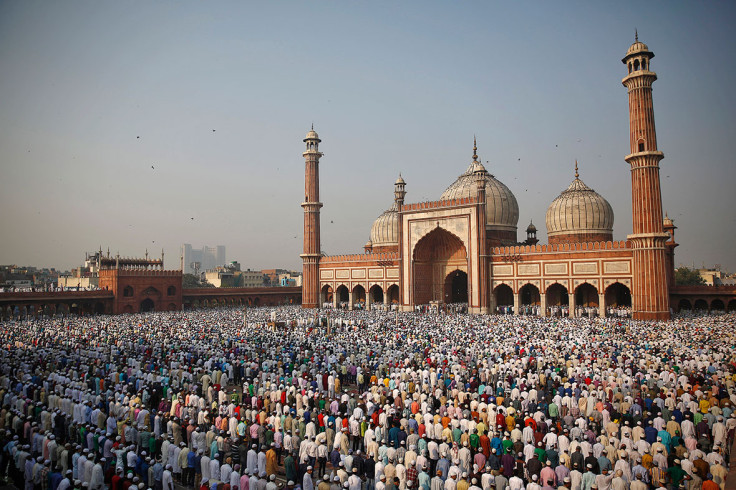Eid al-Adha 2015: What is Greater Eid and when does it start?

Eid al-Adha, known as Greater Eid or the Feast of the Sacrifice, is the second of two major Eid Muslim holidays. This year, the festival begins on the evening of 22 September, according to the lunar-based Islamic calendar. Thousands of Muslims around the world are set to celebrate the festival, which commemorates Abraham's willingness to sacrifice his son Ishamel as an act of submission to God. It also signifies the end of the Hajj pilgrimage to Mecca, Saudi Arabia, which attracts over two million pilgrims annually.
What is the Hajj?
The Hajj pilgrimage is one of the largest religious gatherings of people in the world. As the fifth and final pillar of Islam, it is a mandatory religious duty for adult Muslims to make the journey and it must be carried out at least once a lifetime, if an individual is physically and financially able to do so.
The exact date of the beginning of Hajj depends on the lunar calendar and it occurs on the last month of the Islamic calendar, Dhu al-Hijjah. Muslims of every ethnic group, social status and culture gather together in Mecca and stand before the Kaaba, the most famous shrine in the Muslim world, to praise Allah.
What is the history behind Eid al-Adha?
The festival celebrates the story of Abraham, who was instructed by the Islamic God Allah in a dream to raise the foundations of Kaaba, the sacred shrine in Mecca. Muslims face the cuboid building, located at the centre of Islam's mosque Al-Masjid al-Haram.
Following the call, Abraham set off for Mecca along with his wife and son, Ishmael, trekking across the barren land. In a dream, he saw himself sacrificing his son for Allah's sake. When he told Ishmael what he had seen, his son asked him to carry out the commandment and said he was ready to give his life for God. But when Abraham was about to sacrifice Ishmael, Allah spared the boy's life and replaced him with a lamb – which is what Abraham ultimately sacrificed.
To commemorate the sacrifice, Muslims sacrifice cows, lambs, goats, rams or other animals on Eid al-Adha and give the meat to the poor. According to the Islamic Research Foundation International, one third of the meat is eaten by immediate family and friends, one third is given to friends and one third is donated to the needy. It is increasingly common for families to donate money to charity instead.
© Copyright IBTimes 2025. All rights reserved.





















